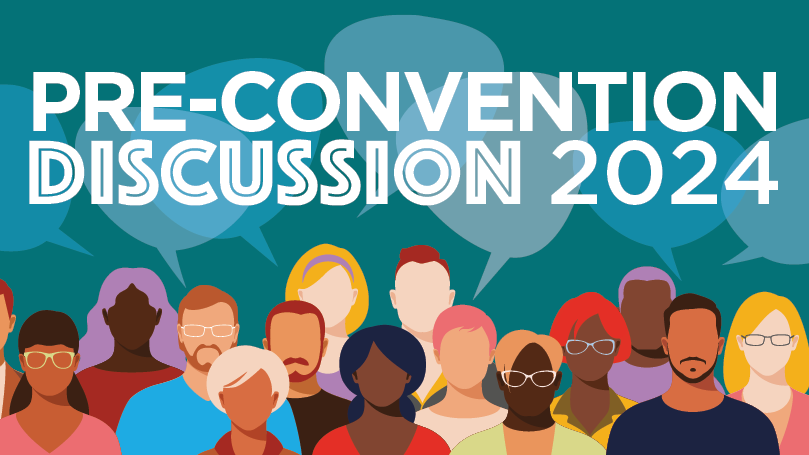
This piece is a contribution to the Pre-Convention Discussion for our 32nd National Convention. During Pre-Convention Discussion, all aspects of the party’s program, strategy, and tactics are up for consideration and debate. The ideas presented here are those of the author or authors alone, and do not necessarily reflect the positions of the Communist Party USA, its membership, or their elected leadership bodies. — Editors
Shortly after the publication of our article calling for community control of the police, the Philadelphia Police mobilized to destroy encampments occupying space in the city twice in the span of two days. While these two encampments were driven by different necessities and motivations, the response to them, and eventual destruction, were nearly identical with the same powerful monied interests behind them. Because of these clandestine operations and undemocratic decision-making process, it is clear that if we want to continue our struggle against the prevalent violent status quo, we must advocate for community control of the police.
The first encampment was located in the neighborhood of Kenisington where unhoused people who use drugs were living in community with one another. This area of the city was a large focus on newly elected mayor Cherelle Parker’s campaign, running on a “tough on crime” pro-police platform. In the months following Parker’s inauguration, this area began experiencing an escalation of police activity. This began with federal law enforcement coordinating with PPD to conduct jump-outs and arrest individuals in the neighborhood without warning, the defunding of needle exchange programs, the eviction of a harm reduction organization, Savage Sisters, from the area, and an increase in Police harassment in the neighborhood. Prior to the clearing out of the encampment, Mayor Parker and the Police Commissioner made promises that the police would be “hands off” when conducting this clear out, and that a majority of the work would be handled by social workers. Instead, what occurred was police arriving over an hour prior to the posted eviction, forcing individuals out of the encampment, destroying any belongings the people could not take with them. Press was not permitted in the eviction area and community members that disregarded the police perimeter were quickly surrounded and escorted out, prevented from providing any aid. Members of the encampment that had communicated with social workers before and were told to wait for their arrival reported that there was no presence of such workers on the day of the clearing
The second encampment was located on the University of Pennsylvania made up of students protesting the genocide in Gaza and calling on the university to divest from weapons manufacturers that profit off of sales to Israel. In the early hours of May 10th, PPD, Penn Police, and Pennsylvania Highway Patrol Officers descended upon the encampment to begin arresting members and destroying any items left behind. Prior to this clearing, state and city elected officials, including DA Larry Krasner, visited the encampment where they called for the students’ right to protest to be respected and that we not replicate the horrendous displays of police abuse towards students that had taken place on other campuses throughout the country. These calls fell on deaf ears. After refusing to negotiate with student-organizers, forcing the encampment to expand the space it occupied, the Penn administration forcibly evicted and arrested members of the encampment from the grounds.
Neither of these operations can lay claim to a democratic mandate behind their actions. The encampment at Penn enjoyed the support of students, Philadelphians and their elected officials. As for the neighborhood of Kenisington, while it is true Cherelle Parker ran on a platform that included addressing this area of the city, the reality of the eviction was far removed from the plan the administration had originally communicated. Regardless, Mayor Parker only received 32.6% of the vote in the primary, hardly a resounding endorsement of her politics by the majority of Philadelphians.
The violent and undemocratic activity of the Police cannot continue if we wish to preserve and expand our rights in Philadelphia and across this nation. Powerful interests regularly abuse their monopoly control over law enforcement, whether against the protesting of racist police killings, resistance to genocidal campaigns against Palestinians and other people around the globe, or vulnerable people coming together in order to survive in a landscape devoid of meaningful support. Wherever resistance to ruling class interests emerges, it is assured that police will be mobilized against it. It is a priority that we struggle to wrest democratic control of law enforcement from the hands of select individuals, in order to restrain it and permit ourselves to fully exercise our democratic rights. We must reaffirm and strengthen our demand for greater police accountability that enjoyed popular support during the George Floyd uprisings of 2020 and call for democratic community control of the police. In order to advance this goal, it is imperative that we join with groups that are already fighting for criminal justice reform, with the perspective of those that have been victimized by police abuses at the front. It is through this work that community control of the police can be won and with it a boon to our movement, equipped with an effective tool to thwart police abuses and reinforced by the connections made with our neighbors during the struggle.


 Join Now
Join Now